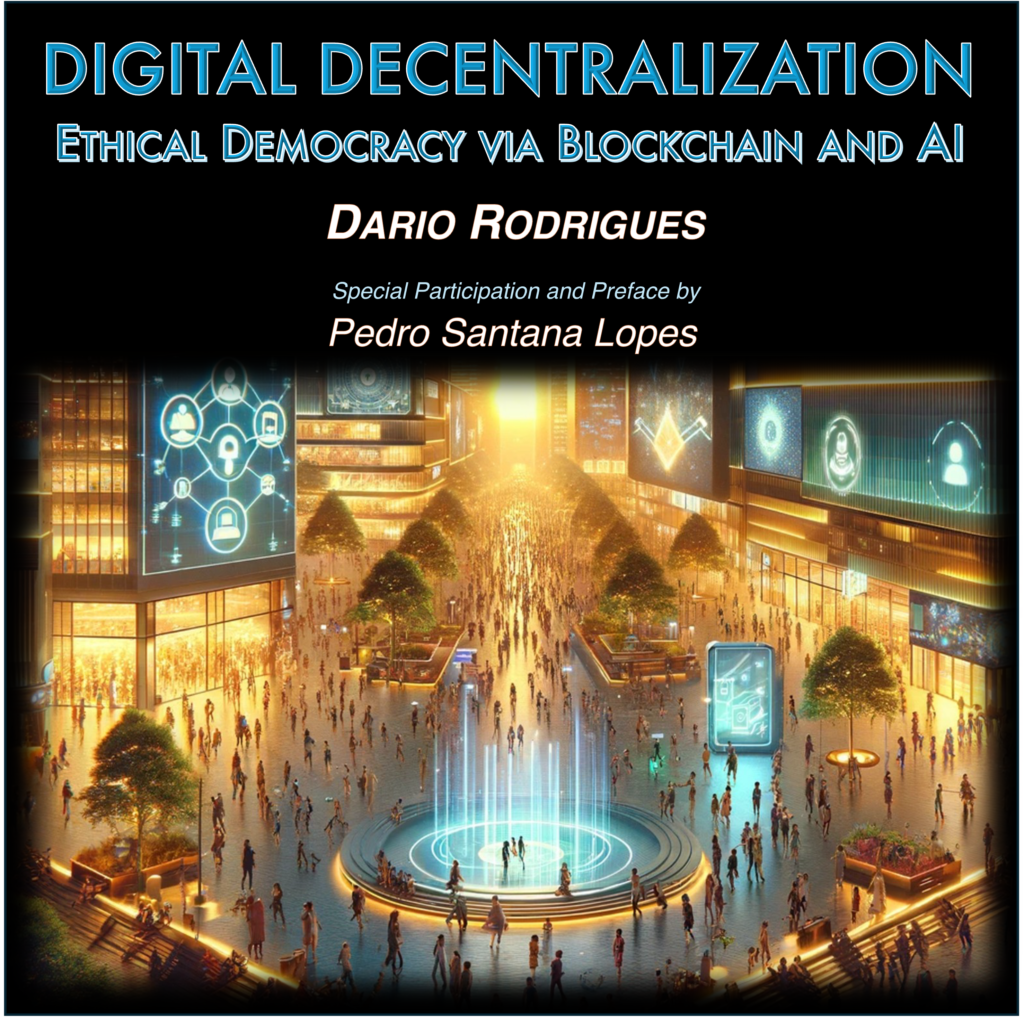Digital Decentralization Against AI-Driven Disinformation
24 Sep

Why digital decentralization is the key to protecting democracy in an era dominated by AI-fueled disinformation.
We live in an era where information is the lifeblood coursing through the veins of our global, interconnected, and digital society. However, the rise of artificial intelligence (AI) and sophisticated algorithms on social media is intensifying levels of disinformation, poisoning this vital flow. This phenomenon is destabilizing public trust in institutions and undermining the integrity of democracies.
Diagnosing a Society Intoxicated by Disinformation
AI significantly amplifies the reach and impact of fake news and manipulative content. Algorithms designed to maximize the allure of social networks and user engagement prioritize content that evokes strong emotions, such as anger and fear. These algorithms keep platform users longer and ideally segment them to maximize advertising revenue.
This business model has created a vicious cycle that leads to extremism and social polarization. Disinformation spreads quickly, making it difficult to distinguish between fact and fiction. People are exposed to content reinforcing their pre-existing beliefs, creating information bubbles and isolating groups.
Even more threatening is the instrumentalization of this algorithmic manipulation by corporate and political interests in ways that escape democratic scrutiny, using disinformation to shape public opinion. Governments elected through such biased processes become entities with unchecked power, capable of pushing their agendas to the extreme. With the legal monopoly on violence, they can suppress dissent and control narratives, seriously threatening democracy. This reality is no longer limited to autocratic regimes, and the free world must take precautions to avoid a similar fate.
Digital Decentralization as an Ethical Antidote
Digital decentralization is the ethical and effective response to combat disinformation and restore trust in democratic structures.
Decentralized digital platforms operate without a central authority controlling data and information flows. Using technologies such as blockchain, they ensure transparency, immutability, and accountability. No single entity can manipulate algorithms on these platforms for its purposes or arbitrarily censor content.
Transparency and User Autonomy
Digital decentralization gives people back control over their data and consumed content. With transparent algorithms, it becomes possible to understand how information is filtered, significantly reducing the possibility of manipulation.
Additionally, users have greater freedom of choice and can opt for algorithms aligned with their values and knowledge needs. For example, in a decentralized system, a user interested in science can choose an algorithm that prioritizes academic sources and verified content instead of being generally confronted with information from dubious sources.
The Difference Between Information and AI-Generated Knowledge
Such selectivity is already a reality in search engines like Google Scholar, where users can filter information from academic and verified sources. However, while search engines essentially function as data aggregators, presenting a list of results based on keywords, AI systems go further. They organize existing information and generate knowledge by combining, interpreting, and inferring data. Their ability to create contextualized responses and “learn” from vast amounts of data makes them much more influential in shaping opinions and decisions.
Thus, the requirements for transparency and freedom of choice are much higher in AI systems. Without decentralized control and the ability to understand how these inferences are made, the potential for manipulation and bias increases drastically. Digital decentralization is, therefore, essential to ensure the integrity and trust in the content presented to people.
Ethical Incentives Aligned with the Common Good
Decentralized artificial intelligence models directly reward the truthfulness and quality of information. Unlike centralized platforms, which profit from users’ prolonged engagement and heightened emotional involvement, decentralized networks are economically viable by promoting content that intellectually enriches users.
For example, a decentralized platform could use digital tokens and cryptocurrencies to reward users who produce or share high-quality educational content. This would incentivize the creation of valuable information and economically motivate users to verify the authenticity of information before sharing it.
A Participatory and Ethical Verification Process
Several platforms have already implemented decentralized digital systems using community validation to ensure ethics in the verification process. In this model, multiple independent users evaluate the accuracy and reliability of content before it is disseminated or rewarded.
Reputation mechanisms reinforce this process: verifiers gain or lose credibility based on the quality of their past evaluations. Implementing smart contracts and self-executing them on blockchain networks ensures that only content validated by a sufficient number of reliable participants receives incentives and rewards.
This way, transparency is inherent in the information and communication system itself, as all interactions and validations are immutably recorded on decentralized digital networks, allowing for public audits. The verification process thus becomes democratic and resistant to manipulation by centralized entities, promoting collective responsibility for the integrity of information.
Active Participation in Narrative Construction
In digital decentralization, users play an active role in constructing the narratives that shape society. Communities themselves can establish consensual rules on content moderation, ensuring that false information is quickly identified and addressed accordingly. Platforms such as the social networks Mastodon and Bluesky allow users to administer their servers, better reflecting their values. This way, individuals can set content and moderation policies aligned with their principles, creating an environment more suited to their community without preventing interaction with other social network members. X’s “Community Notes” feature (formerly Twitter) also empowers users to validate published content.
For those who want to explore the intersection of digital decentralization and AI further, the series Digital Decentralization: Ethical Democracy via Blockchain and Artificial Intelligence, available on YouTube, offers a quick and in-depth analysis of the political-economic impact of these technologies on steering our society toward an ethical and democratic path.
Conclusions and Recommendations
AI-powered disinformation poses an immediate threat to democracy and individual autonomy. An information ecosystem controlled by interests alien to the common good is already compromising our freedom.
Digital decentralization is the necessary and effective solution to this problem. Redistributing informational power openly and transparently creates an environment where information gains independence, and users actively participate in the genuine construction of social narratives.



No comments yet